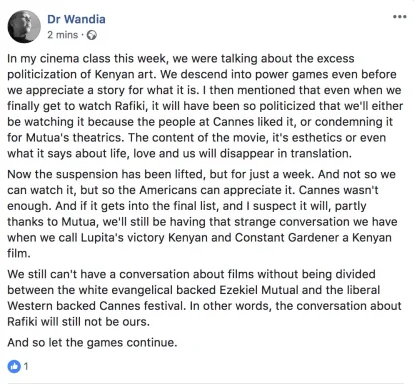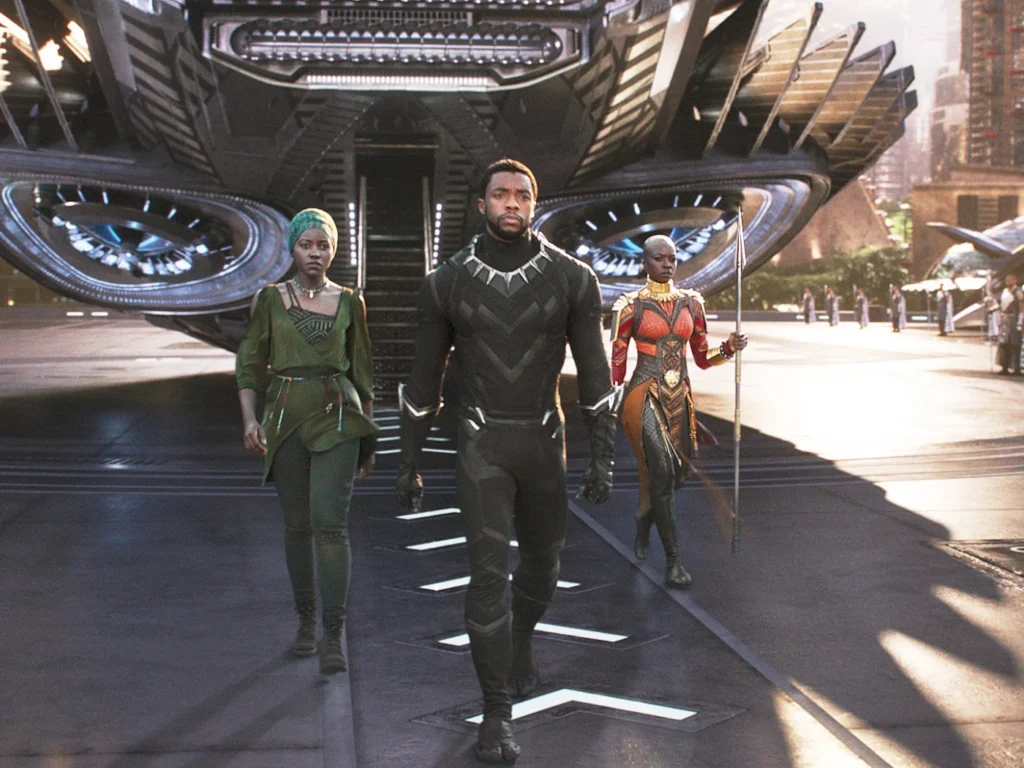Something that Wandia Njoya wrote the other day made me sit up and pay attention. Not just because it was so profound, it also articulated something I had been struggling for years to clarify to myself, not understanding the source of my angst.

One would imagine after several years of financial hardship and broken dreams that ambition would die. That I would resign myself to an ordinary life being average, doing everyday ordinary things, watching the clock tick the minutes, hours, days, weeks, months and years until I was old and grey. Or as more than one person has advised me; get a real job.
I thought dreams needed to be watered with tiny bits of success to flower but this one thrives in a desert of disappointments, heaped on missteps, piled onto disasters. Rather than die in the face of adversity, it simply gets bigger and bigger, more detailed in its magnificence until I wonder, am I going insane to see something so clearly that no one else sees, that seems so unattainable from where I am sitting right now that it may as well be a mirage in the desert.
I have given up trying to explain why I am this way. Why I seem so stupidly stubborn even to my own detriment because no one understands no matter how sympathetic they may be to my cause, simply because they can’t see what I see.
I dream of the day a novel will come out of Africa, written by an African author who lives on the continent and published by an African publisher. A book with its roots in Africa that will take the world by storm. The kind of book that needs no marketing because ordinary readers love it so much they eagerly share it with their friends, families and co-workers, urging everyone they meet to read it.
The kind of book that sells 2 million copies in six months, practically unheard of for an African title. Just to add a little context, Chinua Achebe’s Things Fall Apart took four decades to sell 12 million copies. Fifty Shades of Grey sold the same volume in less than a year. Yes, I know one is literary fiction (a serious book) and the other is popular (erotic) fiction so this is tantamount to comparing apples and oranges. But the reality is that popular fiction set in Africa is yet to gain traction on the world stage as the few Western publishers who publish African fiction tend to pick the literary genre.
Publishers in the West will enter a fierce bidding war to buy the international publishing rights from its African publisher. The film rights will be snapped up just as fast.
It won’t be the usual fare Western audiences are used to (poverty porn), neither will the characters conform to Western stereotypes of the dark continent. It will not be crafted to attract Western audiences or win their prizes. It will tell its story unapologetically, striving only to entertain, not push some agenda. It will delight readers because its message is so authentic and raw, prompting them to draw parallels with their own very ordinary lives.
The Twilight of Africa. Or the Gone Girl of Africa. Critics will try really hard to pin down a descriptor, to fit it into the square or round holes they reserve for African writing, trying to compare it with living or dead African greats, but it will defy these descriptions.
The movie, even if funded and produced by Hollywood, will have African actors leading the cast not black Americans with their fake African accents. I loved Black Panther and watched it several times. But those accents jameni…Grrrrrrr…we don’t speak like that. The movie will sweep the Oscars, creating new A-list African stars on the global stage and elevating some already well known faces to even greater heights. Naturally, it will earn a billion dollars at the box office.
It will change the perception of Africa, helping audiences and readers alike realise that Africa is not a country. That we have nuances in every region and even within countries. It will have an impact on the economy of the country where it is set, both the creative economy and the tourism sector. It will have a cultural impact as well. Just as America’s biggest export isn’t its weapons, cars or technology but its culture, which has spread to every region on the globe, even supposedly closed and traditional markets like China.
It will instil pride in African children to see themselves on film on their own continent and motivate upcoming writers and artists. Its soundtrack, even if a collaboration with Western musicians, will have an authentic African sound at its heart.
I dream that a teenage girl or boy being carried shoulder high after scoring straight As in KCSE and asked the inevitable question, “Which career do you want to pursue?” will not say medicine, architecture or engineering – all great choices but we’re used to hearing that. Instead the answer will be: I want to be a writer or an artist.
The best part is no one will blink in surprise at this answer because a career in the arts will be an acceptable first choice, not plan D after all else fails. Or something pursued in secret as an act of defiance or rebellion alongside the traditional career choices. Anxious parents will not stage interventions that evening to dissuade their children from pursuing the arts, saying it is a career for fools and dreamers.
I dream that all this will happen in my lifetime and that I get to see it unfold. Even if one of my books is not the catalyst, I still want to see the wave of change that a single book can bring to the world – a book set in Africa, written by an African living in Africa and published by an African publisher.
Are these the delusions of someone who has finally lost her marbles and grip on reality? I don’t know. Only God knows.
All I know is, if this is nothing but a fairytale, I don’t want to wake up. I don’t want to live in a world where there is no hope of an African writer making it big unless he or she is discovered by a European or American literary agent and published in the West or their work is recognised and becomes popular only after they win a Western literary prize.

